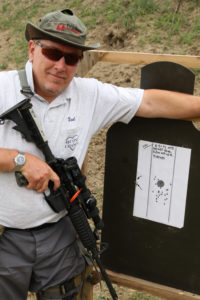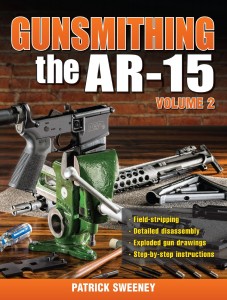
 There have been some pretty shocked politicians in Hartford and Albany the past couple weeks. The source of their befuddlement? The noncompliance of gun owners.
There have been some pretty shocked politicians in Hartford and Albany the past couple weeks. The source of their befuddlement? The noncompliance of gun owners.
Apparently the gun and magazine restrictions Connecticut and New York recently enacted have struck a sour note with the citizenry.
Only a smattering of gun owners have lined up to register their “assault weapons” and “high capacity magazines” in Connecticut. Things do not appear much better for the applicable firearms in New York, though it is hard to tell for certain given the state refuses to divulge compliance numbers.
These acts of civil disobedience have left some politicians downright slack-jawed. But should they really be surprised with the citizens' reaction to what have been perceived as unjust laws? Not at all. The history of gun registrations and restrictions more than readily predicted the present outcome.
J.D. Tuccille detailed the subject just before the most recent rounds of gun-control laws were hustled through the state legislatures. His lengthy piece is worth dedicating some time too, the Reason.com editor does a comprehensive job dissecting the history and failure of gun registrations and restrictions, here and abroad. And the results he details are dismal. How dismal? Well, consider what was perhaps the most successful gun-control push in America:
The high water mark of American compliance with gun control laws may have come with Illinois’s handgun registration law in the 1970s. About 25 percent of handgun owners actually complied, according to Don B. Kates, a criminologist and civil liberties attorney, writing in the December 1977 issue of Inquiry.
That's gun-crazy America for you. Or is it? When you plumb the data concerning gun registrations and restrictions around the globe you come to find the United States is hardly a solitary figure when it comes to noncompliance. Tuccille touches on exactly how distasteful gun-control policies have been off American soil, combing through the Small Arms Survey:
[T]he United Kingdom, with just shy of 1.8 million legal firearms, has about four million illegal guns. Belgium, with about 458,000 legal firearms, has roughly two million illegal guns. In Germany, the number is 7.2 million legal guns and between 17 and 20 million off-the-books examples of things that go “bang” (a figure with which the German Police Union very publicly agrees). France, says the Survey, has 15-17 million unlawful firearms in a nation where 2.8 million weapons are held in compliance with the law.
Some back-of-the-envelope math from the numbers supplied from the Small Arms Survey puts the European Union's overall registration compliance rate at around 36 percent. But the Europeans' rebellious streak is hardly the most damning example Tuccille presents in the article. Instead, the most disturbing aspect of the report — in context to recent events — deals with New York. The state has had strict firearms registration laws since the Sullivan Act was passed in 1911. And the city of New York has among the strictest laws anywhere in the country regarding firearm ownership. But these rules and regulations have done little to get citizens to snap in line:
In a city that, as I write [Dec. 22, 2013], has roughly 37,000 licensed handgun owners and about 21,000 rifle and shotgun licenses, the running guesstimate of illegal firearms stands at two million, give or take a bit. That’s the number the U.S. Department of Justice has used in its official publications in recent years.

That works out to around a 3-percent compliance rate in the Big Apple, but citizens can hardly be blamed for their reluctance to be counted. Registrations have lead to confiscation, which has been attributed as a factor of worse governmental-sanctioned atrocities throughout history. Not to mention, the policy's stated goal of violence reduction is dubious (this and this offer a couple more perspectives on this subject).
So domestically and globally, it is no surprise rebellion appears to be the norm when it comes to gun registrations and restrictions. What is shocking, given these unfeasible policies' history, are elected officials trying them again, but this time anticipating they will work. Theoretical physicist Albert Einstein had a name for something attempted over and over again with the expectation of different results — insanity.


![Best Concealed Carry Guns In 2025 [Field Tested] Wilson Combat EDC X9S 1](https://gundigest.com/wp-content/uploads/Wilson-Combat-EDC-X9S-1-324x160.jpg)


![Best 9mm Carbine: Affordable PCCs [Tested] Ruger Carbine Shooting](https://gundigest.com/wp-content/uploads/Ruger-Carbine-Shooting-100x70.jpg)
![Best AR-15: Top Options Available Today [Field Tested] Harrington and Richardson PSA XM177E2 feature](https://gundigest.com/wp-content/uploads/Harrington-and-Richardson-PSA-XM177E2-feature-100x70.jpg)

Interesting article, being from the UK we don’t have your freedoms but I get where your coming from about registration. I think there ought to be some distinction when considering “unregistered” firearms between those which are legal to own but simply not registered, and those firearms which are not legal to own. I suspect a large number of the UK’s unregistered firearms are so because they cannot be lawfully registered (aka ‘Section 5’). I’ve often said registering individual firearms is time consuming & rather pointless, I ought to be able to buy & sell without having to keep the law informed whats inside my safe.